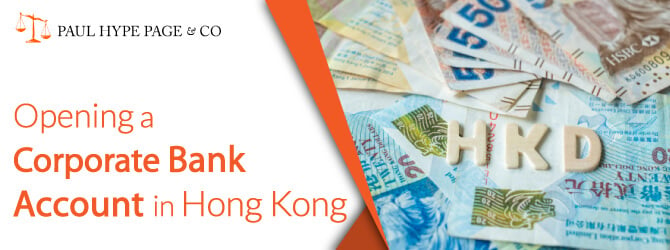Dividends are portions of money which are divided among those in a company who have the right to claim them. This is evidenced by the origin of the word “dividend” itself because it is derived from the Latin word “dividendum”; this word means “things to be divided”.
A dividend is a payment made by a company to its shareholders. Dividends are paid out of a company’s earnings. When a company earns a profit, it will be in a position to re-invest the profits to conduct certain business activities.
Earnings generated in this way are known as retained earnings. From this profit, the company pays a percentage of the profit as a dividend to the shareholders. The share of the profit to the shareholders might be in the form of cash which is normally deposited into a bank account.
However, if the company has a viable reinvestment plan, the amount can be paid through the use of further shares or even a share re-purchase. After paying to dividends, the shareholders usually have to pay income taxes. Dividend expenses are usually unrelated to a company’s income tax calculations.
A dividend is worth a predetermined amount and is calculated through the value of a specific share. Dividends often serve as a steady source of income for shareholders. They also make shareholders more confident about the shares they hold within the company.
Dividend Payments Made by Different Business Entities in Hong Kong
In a joint stock company which is based in Hong Kong, the payment of dividends is not regarded as an expense. The retained profits and earnings are considered to be a form of shareholders’ equity. They are indeed listed as such on the corporation’s balance sheet and are thus placed in the same category as the issued share capital of the company. In public companies, dividends are usually paid according to a fixed schedule. However, public companies in Hong Kong have the right to pay dividends at any time. Such dividends are referred to as special dividends. This distinction is made so that one will be able to distinguish between scheduled dividends and special dividends.
Important Dates Related to Dividend Payments in Hong Kong
Dividends must be approved by the board of directors of a company before they may be paid. There are four important dates to remember regarding dividends. One of these is the declaration date.
The declaration date is the day on which the members of the board of directors announce that they plan to pay a dividend. Once such an announcement has been made, the company will begin to owe money to its shareholders. At this point, a date of record and a payment date will also be announced. On the date of record, the company will review its records so that it will be able to determine the identity of its shareholders.
Those who are not authorized to be paid a dividend will, of course, not be allowed to receive one. Another important date which relates to the payment of dividends is the ex-dividend date. Only those who own the stock’s upcoming dividend, an investor must purchase shares of the stock before the ex-dividend date. On the payment date, the shareholders will receive the dividend.
How One May Increase the Amount of Money Received Via Dividend Payments
The dividend payments issued by each company in Hong Kong have differing values.
However, a shareholder can increase the amount of money received from dividend payments. This may be done by holding shares in more than one company. Those who plan to do so should begin the process by searching for available shares of companies which are likely to increase the value of their dividend payments in coming years. Doing so will allow shareholders to gain more money than ever before.
Some shareholders who have been paid dividends might subsequently opt to reinvest these dividends. The value of the increase in money received from dividend payments depends upon the shares of the dividend stocks which are owned. The more shares one owns, the more money one will be able to make from the dividends.
Those who own shares for a sufficiently long period will find that it is possible to earn a substantial amount of money through payments related to dividends.
How Dividend Payments Are Related to Taxation
In Hong Kong, just as is the case anywhere else in the world, dividends are part of the profits of a company after taxes have been paid. They are to be distributed to the company’s shareholders according to how many shares they hold.
These payments can be made in the form of cash payments or stocks. They may also be made via other forms of payment. The most common type of dividend payments are those of cash dividends.
In Hong Kong, the Companies Ordinance (Cap. 622) identifies dividends as distributions of a company’s assets to its members. Such distributions may be made in cash, though this does not necessarily have to be the case.
Every company in Hong Kong may only pay dividends to its shareholders if it has any available profits. Most double taxation treaties signed between Hong Kong and foreign countries and territories generally define dividends as income which has been generated through the holding of shares or other similar activities.
Treatment of Dividend Income
There is no dividend tax in Hong Kong. Therefore, dividends repatriated to Hong Kong territory are not subject to any taxation there. Furthermore, dividends paid by a Hong Kong company to its shareholders will not have any Hong Kong taxes imposed upon them after shareholders have received the dividends.
There is no withholding tax imposed upon dividends paid to shareholders who are not in Hong Kong. This fact sets Hong Kong apart from many other developed economies because such economies have a dividend tax, which is an income tax imposed on any dividend payments made to shareholders, in place. Most countries usually tax dividends through the use of a withholding
tax regime according to which the company paying dividends withholds the amount of tax which is to be paid. The company subsequently pays out the remaining amount of money to the shareholders.
However, such a regime is non-existent in Hong Kong. This lack of a tax on dividends has in turn caused many to want to become shareholders of Hong Kong companies because they would thus gain more money than they would by holding shares of companies based where there is a withholding tax regime in place.
FAQs
In Hong Kong, foreigners are allowed to receive dividend payments. Dividend payments which have been received by foreigners who are in Hong Kong are not subject to any taxation. This is true of all dividend payments in the country regardless of who has received them. Thus, there is also no necessity for a foreigner who has received dividends in Hong Kong to file a tax return for any dividends received.
Not every company based in Hong Kong is required to pay dividends. This is because companies are only expected to pay dividends when certain circumstances surrounding the company are evident. However, legal action can and will be taken towards any firm which does not pay dividends to its shareholders even when it ought to do so.
Dividends only ought to be paid if the company has made positive earnings. Such will occur if the company’s net profits over the current fiscal year amount to a total higher than the company’s cumulative losses over preceding fiscal years. If such a circumstance takes place, the shareholders of the company can expect to receive dividend payments accordingly.
The overall revenue of the company plays an important role in determining the amount of dividend money it is to pay. This is because any of the company’s net profits earned through any business activities will be the source of the dividends to be paid. Before a company may pay any dividends, it must ensure that the revenue earned from its business activities must be enough to
grant a suitable amount of dividend to its shareholders. In general, the greater the total revenue of a company, the more money through dividend payments will be received by the shareholders of the company.






